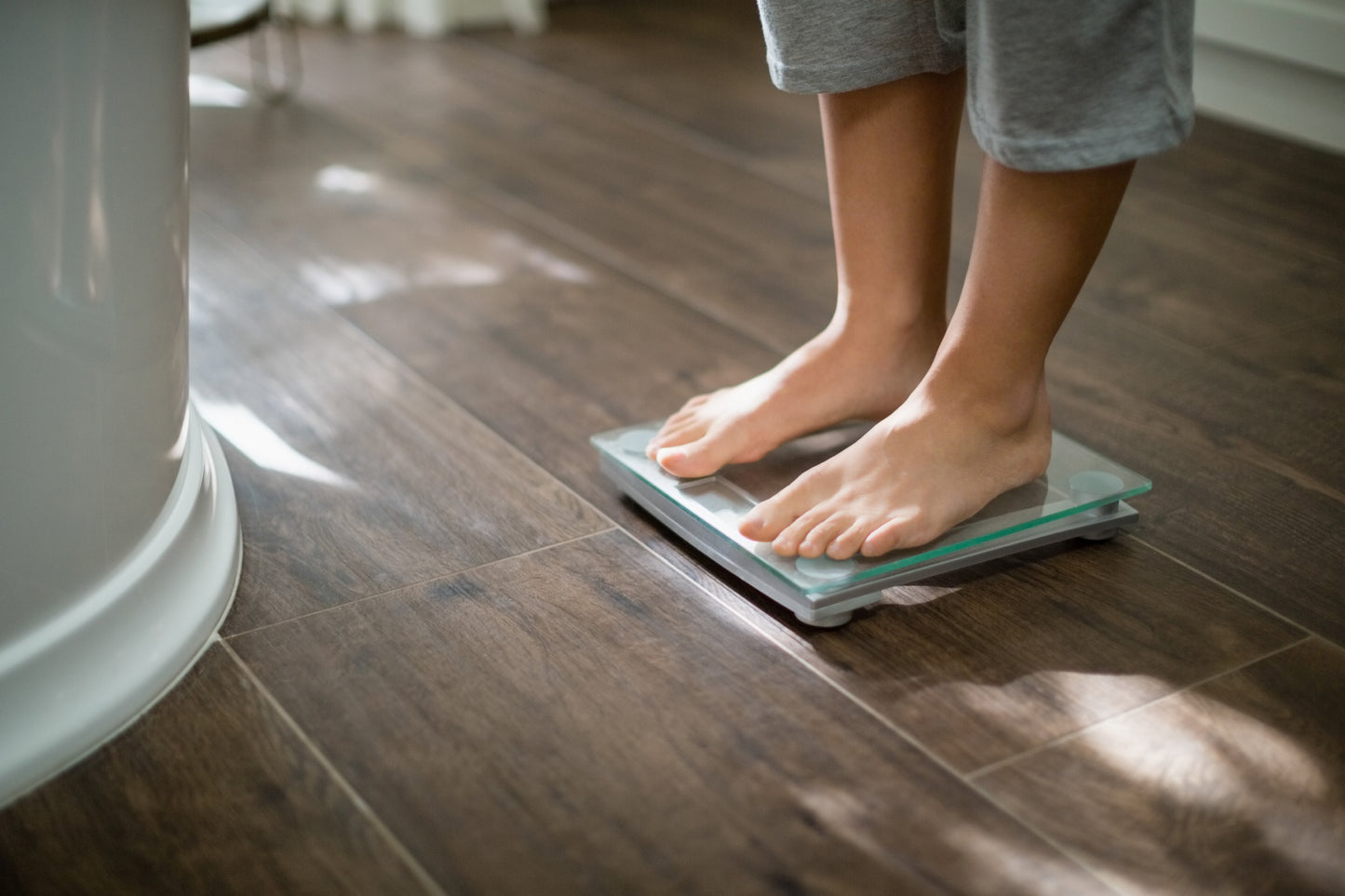
Why Am I Not Losing Weight on Keto? 5 Reasons
Keto has been touted as an effective option for weight loss, especially for those who have trouble getting results with typical calorie-restriction diets. Ultimately, it’s been a fan-favorite recommendation to help support weight loss efforts in a way that doesn’t deprive your body of nutrients.
When you don’t see the desired results from following a keto diet, there could be a few things wrong. Here are five common reasons why your progress may be blocked and what you can do to get it going again.
What Is the Keto Diet?
The ketogenic (keto) diet is focused on high protein and fat intake and a very low amount of carbohydrates. It’s been around since the 1920s and is still very popular, as it has various health benefits.
First used as a prescription diet, people and healthcare professionals eventually realized that the keto diet could be used as a weight management tool to support overall body health in the modern era. Physicians today sometimes recommend it as a way to support metabolic function.
The keto diet consists of healthy, fatty foods such as:
- Meats like fish and chicken
- Nuts and seeds
- Cheese and dairy products
- Olive oil or canola oil
- Eggs
- Butter
You can also opt for keto-friendly food options like carb-free smoothies or soups. The key is to keep carb intake at least less than 10 percent of your diet and to focus on a high-protein, high-fat diet.
How Does the Keto Diet Promote Weight Loss?
Keto promotes fat loss by encouraging the body to go into ketosis, which is when the body uses fat instead of glucose from carbohydrates as its source of energy. The body fat is then turned into ketones, a molecule that gives your brain energy like glucose. That means your diet should almost wholly avoid carbohydrates, which can show up even in healthy foods, like certain fruits and veggies.
Sticking to a low-carb diet may be initially challenging, especially if you adore carb-heavy foods, but soon the protein from your meals will be filling enough to resist those persistent cravings.
Pairing a keto diet with a great cleanse can help your body and mind to feel fresher and more focused!
What Can Prevent You From Losing Weight on Keto?
There are a few common reasons why you may not see your desired results. Thankfully, you can fix them with a little bit of troubleshooting.
Too Many Cheat Days
We get it. Cheat days are a reward that helps make staying on a diet more manageable. But if Cheat Day becomes Cheat Days, it can become a problem.
Your body cannot achieve ketosis when you consume more grams of carbs than allowed or if you’re overeating. You may also be consuming too many extra calories to see weight loss results.
Sticking with keto can help control your hunger and cravings due to how much protein and fat you consume. It may take a few days to get used to, but eventually, your body will be satisfied with what and how much you’re consuming. There are also plenty of recipes and snacks that are both keto-friendly and delicious.
If you notice that your body isn’t adjusting to the diet and your cravings are still out in full force, it may be because of artificial sweeteners. Many keto dieters turn to keto sweeteners like erythritol and stevia to satisfy their sweet tooth. Unfortunately, the only way to completely kick the cravings is to cut out sweets entirely.
You don’t have to only eat so-so foods. You can enjoy food on keto, and you should! Choose easy and tasty ways to stick to your plan, and browse our keto-friendly line for some ideas.
Not Going Into Ketosis
The point of keto is for your body to enter a state of ketosis. Without this crucial step, you cannot convert fat into energy.
This can happen if you’re still eating more net carbs or high-calorie, low-nutrient snacks. If you’re not tracking macros, it can be easy to miscount or assume your average is correct.
If it’s only been a few days, have some patience. Ketosis doesn’t happen overnight. On average, it takes anywhere from two to four days to enter ketosis.
If you aren’t getting enough sleep or physical activity, that can also contribute to a lack of ketosis in the body, even if you are watching your carbohydrate intake. Your body needs both to function.
For some people, it could be as simple as genetics — but before you decide your body just isn’t cut out for keto, determine if you’re following through on other factors like exercise and diet. You can also measure your blood glucose levels and blood ketones to determine whether your body is in ketosis.
Low-Nutrient Foods
Without nutrients, your body can’t function the way it should. Convenient on-the-go snacks, such as sugary granola bars and processed foods, can disrupt your keto diet. Fast food is also a big culprit, even if you only have it once a week.
Even if something is technically keto-friendly, that doesn’t mean it’s good for your body. Your body needs a variety of foods in order to gather all of the vitamins and minerals it needs to survive — and processed foods tend to severely lack the essentials.
While watching your calorie intake, ensure every calorie is packed with nutrients. Stick with whole, natural foods such as green veggies, like broccoli, lettuce, and kale, and foods rich in healthy fats, such as avocado, fish, and chicken.
These foods can help provide the nutrient-dense content you need to thrive while keeping you in a calorie deficit to help you reach your weight loss goals. Remember, there are plenty of keto recipes that taste so good, you’ll forget you’re even on a diet!
Keep track of your macronutrients and what you eat in a food journal. This way, you can keep yourself accountable and see what parts of the food pyramid you might be neglecting.
External Stress
Your job, difficulties in family life, and many other things can bring stress into your life. Stress makes everything more complicated, including your fat-burning goals and diet. When you’re stressed, you might crave salty or sweet foods, leading to a weight loss plateau.
Chronic stress also produces the stress hormonecortisol, which can slow your metabolism. The more cortisol in your body, the tighter your body hangs on to fat — especially belly fat.
The body also releases glucose into the bloodstream to give it quick energy to “escape” the problem. When stressed, the body also tends to hang on to additional calories it thinks it needs.
One study revealed that women who reported at least one stressor within the past 24 hours burned 104 fewer calories than women who didn’t. Stress can also spike insulin levels, making it harder to burn fat.
While you can’t change certain events or other factors in life, you can control your reactions to many of them. Consider implementing daily walks, journaling, meditation, and other stress-relief activities to lower stress levels. You should also remember to exercise — even a short walk during the day can help.
Most of all, give yourself grace. Contact a friend or a mental health professional if you're going through a hard time, and remember that everything takes time.
Unrealistic Expectations
Have you stepped on the scale and been disappointed by the lack of results? Or did you expect to lose more weight by a certain point? You may have unrealistic expectations about how the keto diet works.
While keto can have great results, don’t expect the pounds to disappear within a day or two. Healthy weight loss means losing anywhere from 0.5 to two pounds per week, depending on the number of calories you’ve consumed and how much you’ve exercised. If your goals are higher, you should work with a healthcare professional.
If you have excess water weight, you could see a rapid drop in weight in the first few weeks, and you may see it slow in the following weeks. This is because water weight drops quicker than pure fat. So while progress may seem to plateau, it may be due to your body beginning to lose pure fat as opposed to water weight.
Combining exercise with your keto meal plan, especially muscle-building activities, can help replace fat with muscle mass. However, more muscle means your body naturally burns calories faster, and muscle also weights more than fat. So if you do not see any body weight results on the scale, measure your waistband and see if anything has changed.
The Bottom Line
If you’re interested in doing keto, consistency is critical. Giving up too early can cheat you out of seeing outstanding results! You won’t see the results you desire if you are not in ketosis.
If you’re snacking on low-nutrient meals, your body might not trust itself to lose weight. Instead, replace your favorite snacks with nutrient-rich, keto-friendly choices.
Remember to limit your stress and keep healthy boundaries with others. Exercise can also help speed up results and keep external stressors to a minimum.
Finally, keep a healthy mindset and realistic expectations about weight loss. Don’t expect to see results overnight; staying disciplined with a keto-friendly diet plan is vital if you want to see all your hard work pay off.
Dr. Kellyann is a weight loss specialist who uses the secret power of bone broth protein to encourage ketosis and weight loss. If you want to support your health while slimming your waistline, learn more today!
Sources:
Ketosis: Definition, Benefits & Side Effects | Cleveland Clinic
Ketogenic Diet - StatPearls | NCBI Bookshelf
Low-Carb and Ketogenic Diets in Type 1 and Type 2 Diabetes | PMC







